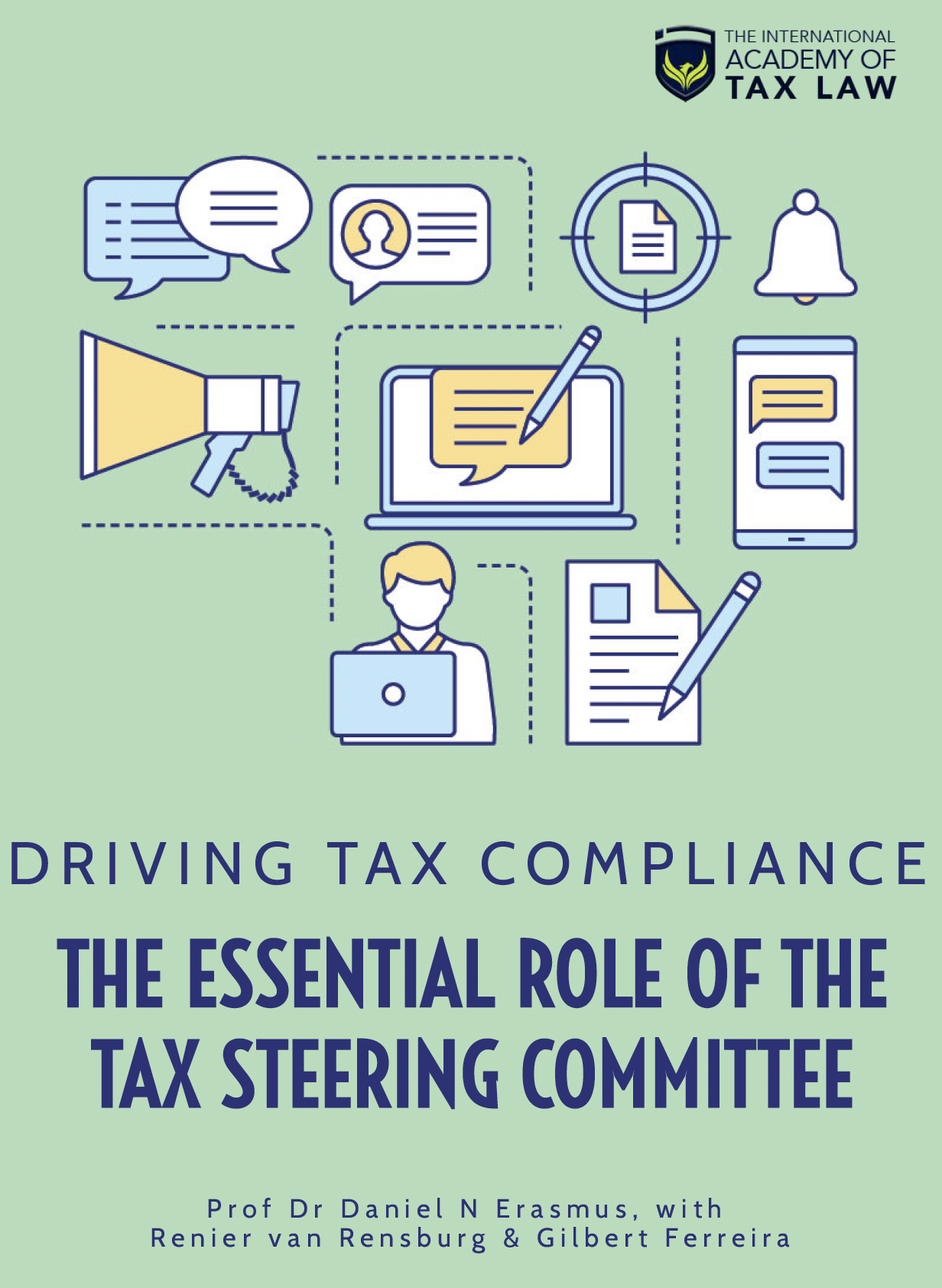Description
The eBook “Driving Tax Compliance: The Essential Role of a Tax Steering Committee” by Prof. Dr. Daniel N. Erasmus, Renier van Rensburg, and Gilbert Ferreira emphasizes the critical importance of establishing a Tax Steering Committee (TSC) within multinational corporations to ensure tax compliance and manage tax-related risks effectively.
Executive Summary
In the complex global tax landscape, a TSC is vital for multinational corporations to maintain compliance and minimize risks. The eBook highlights the expertise of Prof. Dr. Erasmus and his team in forming effective TSCs and the importance of client-attorney privilege in these settings.
The Role of a Tax Steering Committee
A TSC coordinates tax strategies, ensures compliance, and manages tax risks across multiple jurisdictions. It typically includes senior executives, financial officers, and legal advisors who align tax strategies with business objectives, stay updated on tax laws, and ensure transparent tax practices.
Establishing a Tax Steering Committee
Forming a TSC involves selecting individuals with diverse backgrounds in tax, finance, and legal matters. The committee should have clear objectives and responsibilities to improve tax compliance within the organization. Key stakeholders include executives, CFOs, financial directors, accountants, financial managers, risk managers, lawyers, and consultants.
Benefits of a Tax Steering Committee
A TSC centralizes tax decision-making, enhances communication and collaboration among key stakeholders, and helps companies stay ahead of changing tax regulations. It also ensures that records are accessible, simplifying the resolution of complex tax issues in the future.
Risks of Non-Compliance
Non-compliance with tax regulations can lead to hefty fines, legal consequences, and damage to a company’s reputation. It can also cause operational disruptions and inefficiencies. Establishing a TSC helps mitigate these risks by ensuring proactive tax compliance.
Best Practices for Tax Steering Committees
Regular meetings and open communication are essential for effective tax management. Continuous education and training for TSC members help them stay updated on the latest tax laws and regulations. Monitoring and reporting tax compliance metrics provide transparency and accountability, helping identify potential risks and areas for improvement.
Case Studies and Success Stories
The eBook provides real-life examples of successful TSCs, such as XYZ Corporation and ABC Inc., which have effectively managed tax compliance and optimized their tax strategies through dedicated committees.
The Future of Tax Compliance and the Role of Tax Steering Committees
Emerging trends in tax regulation, such as increased transparency and digitization, require companies to stay informed and proactive. A TSC can help navigate these changes and leverage technology for enhanced tax compliance.
Conclusion
Establishing a TSC is essential for multinational corporations to drive tax compliance and optimize tax strategies. By bringing together key stakeholders and experts, the committee can effectively manage tax risks, ensure compliance, and enhance the overall tax function of the organization. The inclusion of client-attorney privilege within the TSC further strengthens its effectiveness.In summary, the eBook underscores the strategic importance of a TSC in managing the complexities of global taxation, ensuring compliance, and safeguarding the financial stability and reputation of multinational corporations.



